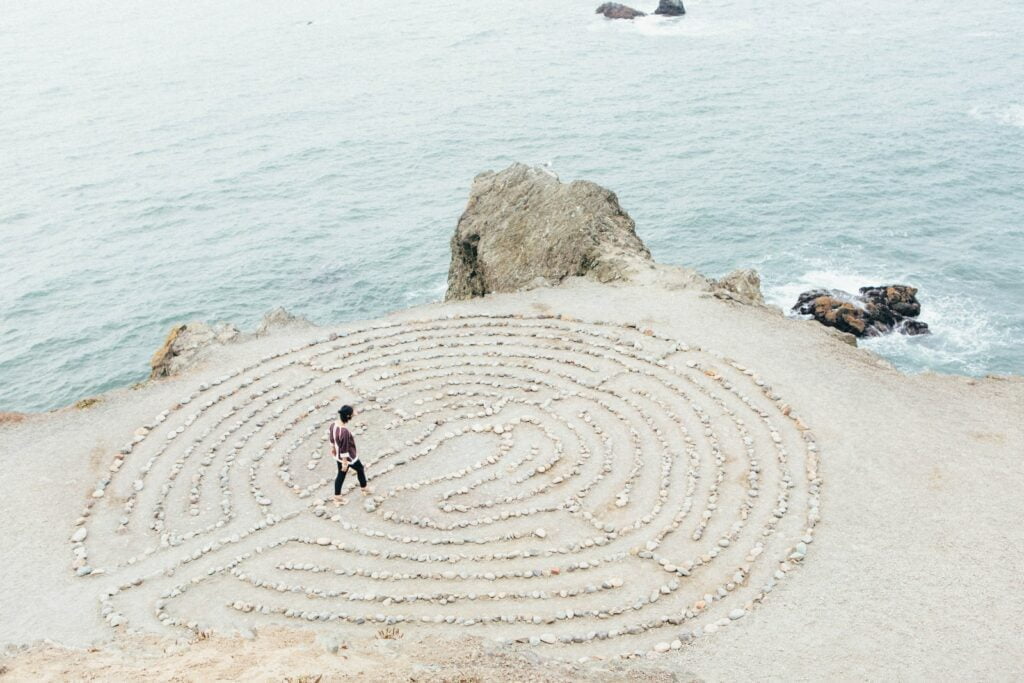Mental Health- a dance between the ebb and flow of life

While accepting that mental health is getting poorer every day, and the price of a good day is higher and higher, it can be difficult to navigate the ebb and flow of life and many see life as a rollercoaster ride, full of highs and lows, twists and turns, but I see it as a dance. In this article we invite you to explore the possibility of taking control of your feelings and how you respond to external stressors and challenging them with resilience and self-love. Together we will check the real price of a good day and creating your own reality.
The cost of poor mental health is not just personal – it also has a significant financial impact. Mental health conditions are among the leading causes of disability and lost productivity worldwide. In the US alone, the cost of mental health conditions is estimated to be over $200 billion per year.


Table of Contents
Mental health: how is your brain reacting to the ebb and flow of life?
Did you know that in the United States, nearly one in five adults experiences mental illness each year? Mental health is just as important as physical health, and it’s essential that we accept our role in dancing along with the flow of life.
When you experience a good day, your brain releases chemicals like dopamine and serotonin, which make you feel happy and satisfied. On the other hand, when you experience a bad day, your brain releases cortisol, which can make you feel stressed and anxious. The brain’s reaction to change is a natural process, but it can be challenging to manage your own emotions during these times.
It’s essential to understand how you react to your own emotions. When you experience a negative emotion, like sadness or anger, your first instinct may be to suppress it. However, suppressing your emotions can lead to more significant problems in the long run. It’s important to acknowledge your emotions and challenge them or find healthy ways to cope with them.
I would go as far as comparing negative emotions with a minefield. Recent studies have shown that mindfulness have the same effect as medicine on mental health and well-being. Being present and focused on the moment it can help you manage self-doubt, stress, anxiety, and other negative emotions but you need to look around you and find a safe space to experience the gift of the present moment.
It is true that life is full of good days and bad days, but it’s important to find the right balance between the two. Mental health is just as important as physical health, and it’s essential that you take care of both. Understanding how the brain reacts to change and how we react to our own emotions. I imagine the vagus nerve as a conductor for the symphony that my body plays for my brain. Connecting the dots, knowing yourself better will help you navigate through the ebb and flow of life and course correct your destiny. Remember to focus on what you can control- your own rhythm.

Dancing in the rain with the flow of life
Life is not always sunshine and rainbows. Some days, it rains. A lot. On a good day you feel like you are on top of the world, while other days, you struggle just to get out of bed. We all have bad days and good days, but the key to living a fulfilling life is finding your North. Identifying the place where you feel that you are in alignment with what you want and keep elevating your energetic desire at the top of your priority list. On reflection, my do to list used to be full and all sorts of things to do. I remember those times being like a fire fighter, carrying a heavy instinctor in my arms, all the time. But in the last decades my “to do list” carries a single thing : to be me. What do you have on yours?
When you are in alignment with what you want, you have better chances to know who you are, what you stand for, and what you want to achieve in life. Being in alignment means that you are doing things that make you feel good about yourself, your worth, feeling happy with no specific reason, being grateful that you are living our purpose. Being authentic and true to yourself, you are already making a positive impact on the world around us.
When you are in alignment, you radiate confidence and the positive energy that comes with it attracts positive experiences and positive people into your life. You feel inspired, motivated, and alive. You are passionate about what you do, and you have a sense of purpose that gives you a deep sense of life satisfaction.
Despite everything we build within, sometimes you can find ourselves feeling lost, stuck, or disconnected from your true self. This is when your energetic presence can dip, and you begin to experience more bad days than good. It’s important to recognize when you are in this state and take steps to get back into alignment, into your own flow of life. In my own personal experience is coming down to remembering that you are not simply facing a reality or another, or you are a victim of a system or set of circumstances. You create your own reality as well as your own challenges, you create your own good days and bad days.
When you are in alignment with what you want, you are living your truth. You already know who you are, what you stand for, and what you want to achieve in life, and a bad day is nothing but a temporary amnesia. Being in alignment gives you the green light for doing things that make you happy, celebrating your reason for being, making a positive impact on the world around us. To be able to dance with the ebb and flow of life you need to remember to be authentic and true to yourself.

Mental health: what is the price of a good day?
Money can have a significant impact on your perception of a good day or a bad day. Financial stress can weigh heavily on our minds, causing feelings of anxiety and frustration that can spill over into other areas of our lives. On the other hand, financial security can bring a sense of ease , social justice and freedom that can improve our overall mood and well-being.
There is scientific evidence to support the idea that money can impact our emotions and overall sense of well-being. Studies have shown that individuals who are financially stable tend to report higher levels of happiness and life satisfaction compared to those who are struggling financially but at the same time, 85% of the most successful people are unhappy. Financial stress can activate the amygdala, the part of the brain responsible for processing emotions like fear and anxiety. When the amygdala is activated, it can cause a cascade of negative emotions that can impact our mood, behavior, and overall well-being.
On the other hand, financial security can activate the prefrontal cortex, the part of the brain responsible for problem-solving, decision-making, and higher-level thinking. When the prefrontal cortex is activated, it can lead to a greater sense of control and confidence, which can improve our overall mood and sense of well-being. It’s important to recognize the impact that money can have on our emotions and well-being, but it’s equally important to not let it define our sense of happiness and fulfillment. While financial stability can bring a sense of ease and comfort, there are many other factors that contribute to a good day or a bad day, such as social connections, personal growth, and meaningful experiences but the question you need to ask yourself is ‘what is the real price of a good day for your mental health?’
I remember interviewing an accountant from South Africa who said that some people who live on one dollar a day are happier than some super-rich people who struggle with poor mental health. She was then explaining that traditionally locals are cultivating a sense of gratitude for the positive aspects of their lives, and they shift their focus away from financial stress and towards the things that truly matter. This can help improve our overall sense of well-being, regardless of our financial situation.

Life is full of ups and downs, good days and bad days. It’s natural to feel stressed and overwhelmed by the demands of everyday life, but there are ways to handle the pressure and find peace amidst the chaos.
On a good day, everything seems to fall into place effortlessly. You wake up feeling refreshed, the sun is shining, and you breeze through your to-do list with ease. But on a bad day, it’s the complete opposite. You wake up feeling tired and unmotivated, the rain is pouring down, and everything seems to go wrong. It’s important to acknowledge that these experiences are part of the ebb and flow of life, and that it’s okay to have bad days.
The key is learning how to handle the stress that comes with everyday life, whether you’re having a good day or a bad day, stay grounded and focused, even when things get hectic. Practising self-love as normal dimension of your life, scheduling to do things that nourish your body and soul, like self-reflection, fun activities, meditation, journaling , reading, or spending time outdoor. Taking care of yourself is what keep your body and mind ticking and strengthening your well-being to weather the storms of life with greater resilience.
It’s also important to remember that it’s okay to ask for help when you need it. Whether it’s talking to a trusted friend, seeking professional counseling, or joining a support group, reaching out for help can make all the difference.
It’s helpful to keep things in perspective. When things feel overwhelming, it’s easy to get caught up in negative thinking and lose sight of the bigger picture. Try to take a step back and focus on what’s truly important in your life. Remember that bad days are temporary and that tomorrow is a new day with fresh opportunities and possibilities.
Learning how to manage stress and find inner peace can help us navigate the ups and downs with greater ease and resilience. By practicing mindfulness, prioritizing self-care, seeking support, and keeping things in perspective, we can handle the stress of everyday life and find joy amidst the chaos. The cost of a good day for mental health is borne not only by individuals but also by society as a whole. More and more companies across the world experience reduced productivity and increased healthcare costs, while governments may need to invest in social programs and mental healthcare services to support those with mental health conditions.

Dancing stress into serenity to prevent poor mental health
Do you often feel overwhelmed by your to-do list, constantly striving to check off tasks and achieve goals? While it’s important to have a sense of purpose and accomplishment in our lives, this approach can also lead to stress and burnout. One way to shift our focus and find more peace is by creating a to-be list.
Unlike a to-do list, which outlines specific tasks to be completed, a to-be list focuses on embodying qualities or characteristics that you wish to cultivate in yourself, the things that make you feel that you are good enough. This might include things like social impact, compassion, community, reading, kindness, journaling, creativity, or even resilience. Shifting your focus, you can create new experiences and move away from the pressure of achieving tangible outcomes and towards a more present and meaningful to you.
Research has shown that practicing self-love and self-compassion can have numerous benefits for your mental health. Trading your to-do list and focusing on qualities that make you feel good about yourself, you can foster a greater sense of self-acceptance and self-esteem. This, in turn, can help reduce symptoms of anxiety and depression and increase our overall sense of well-being.
Additionally, by embodying these qualities in our daily lives, we can create a more positive and supportive inner dialogue. Instead of constantly criticizing ourselves for our shortcomings or perceived failures, we can cultivate a sense of self-compassion and understanding.


Creating your to-be list to preserve your mental health
Creating a to-be list is a simple yet powerful exercise in self-reflection and intention-setting. Here are some steps to get started:
Reflect on what is important to you in life. What values or qualities do you admire in others or wish to develop in yourself?
Write down your top qualities or characteristics on a piece of paper or in a journal. You might also consider adding specific actions or behaviors that can help you embody these qualities.
Review your list regularly, such as daily or weekly, and focus on incorporating these qualities into your daily life. This might include setting reminders, practicing mindfulness, or seeking support from a therapist or trusted friend.
Find inspiration around you or within, switch off the news channel you are watching to take a break from the toxic headlines in the media and the dark side of social media.
Focus towards the qualities that make you feel grounded and fulfilled, so you can trade stress for serenity and create a more fulfilling and joyful way of living.
Remember, it’s normal to have bad days, but it’s important not to get stuck in a negative mindset. Discover a place in your heart where you are in alignment with emotions, your desires and the beautiful energy that comes with it, you will find new ways to respond to the challenges ahead of you and challenge them. Finding balance between good and bad days is about accepting that you already everything you need and more and remembering that you are good enough. Taking control of that feeling, that you are good enough is what is going to switch the lights on.
A client of mine was telling me how she felt in the dark for so long before I came along and “switch the lights on” as she put it. The truth is that I couldn’t do that, I wasn’t there. She did. I just reminded her to reach for the switch button. It’s so easy to get lost in the dark alleys of your mind, feel that you are out of control, but it’s important to remember that you have the power to control your reactions to any situation. You can’t control the weather, for example, but you can control how you react to it. You are the sky. Everything else is just weather.





